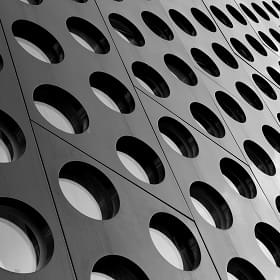Understanding Mechanical Properties of Thermoplastics
Many professionals involved in plastic part design or materials specialists can benefit from improving their understanding of the very complex thermo-mechanical performance of polymeric materials or compounds.
This knowledge is often critical considering the frequently complex failure phenomena observed in plastics (creep, impact, environmental stress cracking, plastic yielding, crazing, brittle failure).
The subject is both very wide and extremely challenging. The ambition of this seminar is to provide an in depth introduction to the participants, regardless of their background or specific experience.
Two days are too little to go deep into every detail, but they are more than enough to explore the subject quite deeply and establish a solid knowledge base for all participants. They will prepare them for more specialized reading or training in their particular field of interest within the area.
If you haven’t attended BIMS I (Understanding Injection Molding of Thermoplastics) this is no hindrance to participating in this seminar.
Seminar’s scope
This seminar will focus on the complex mechanical performance of plastics in order to introduce the key behavior of these unique materials (visco-elasticity, non linearity, creep, impact, failure mechanisms).
The seminar is relevant for
- Design or mechanical engineers working with plastics
- Moulders interested in part performance
- Professionals interested in plastic part failure mechanisms
- FEA specialists
- Project leaders involved in developing plastic parts
- Research engineers interested in polymer performance
- Material specialists or designers wishing to improve their understanding of mechanical performance of a given class of materials (amorphous, crystalline, filled or unfilled).
- Students involved in the field of polymers
- Young, skilled professionals with limited experience in the field
- Seasoned professionals looking for a fresh view on (or review of) polymer mechanical performance
- Flow analysis specialists wishing to extend their knowledge to the field of mechanical performance
- Customer support engineers
- Scientists
Seminar content
The teaching material (over 250 slides) provides an in depth introduction in the field of plastic mechanical performance. After attending the seminar, participants will have a fairly good answer to many typical questions that often come up when dealing with plastics. These questions could be:
- Why does the modulus of plastics change so much with temperature? Why is this change so different from one polymer to another?
- Why do amorphous polymers generally fail in a brittle way in long term tests or impact? Why do some still perform quite well in these conditions?
- Why do we have such a thing as a “brittle-ductile” transition in polymers? What is it exactly? Why are some polymers ductile at some test rates and brittle at lower as well as higher strain-rates? Why is the test “timing” so important for plastics?
- Why does plastic performance change so much with processing conditions, even when unfilled, and even when amorphous?
- Why do polymers “age”? What does this mean and what are the implications on performance?
- What are the mechanisms behind rubber reinforcement? Why is the morphology of these blends so critical? Why do we need to tailor the formulations to every specific polymer?
- What is Yielding? What is plastic flow? Why do some polymers “shear-band” and neck in a tensile experiment, and some don’t?
- What is the role of crystallinity in mechanical properties of plastics?
- Why does a polymer, at the same temperature, generally fail at very different times and stress levels in short vs. long term (creep) tests? Is there a way to predict long term performance from shorter terms tests?
- How can we measure properly the intrinsic mechanical properties of polymers at large strains without artifacts (necking) or premature failure?
- Why do glass fiber increase modulus and strength but reduce elongation at break? What are the reinforcing mechanisms? How critical is the interfacial strength between matrix and filler? What is the optimum fiber length?
- Why do we test plastics with and without a “notch”? What is really happening at the notch? Why do some polymers still perform when notched and some don’t?
The list of questions is very long, but the ones listed above give at least a good idea of the general approach of the seminar. The seminar focuses on giving the participants a through understanding so that any new question, new problem, new polymer can hopefully be addressed and examined with the right concepts in mind.
Bring your own materials, examples or stories
Compared to the now classical BIMS seminar on Injection Molding, this training on mechanical properties is more challenging in terms of theoretical content. We count on the attendants’ active participation to bring up examples of plastic part failures or other mechanical related issues in order to make the session as interactive as possible.
As observed over the years with our BIMS I seminar on Injection Molding, we will enrich the presentation with more and more practical examples provided by the participants as we go.
We thank you in advance for your help and material (parts, drawings, pictures, examples, good stories…).
Som medlem af Dansk Materiale Netværk opnår du rabat og kan deltage til medlemspris.


